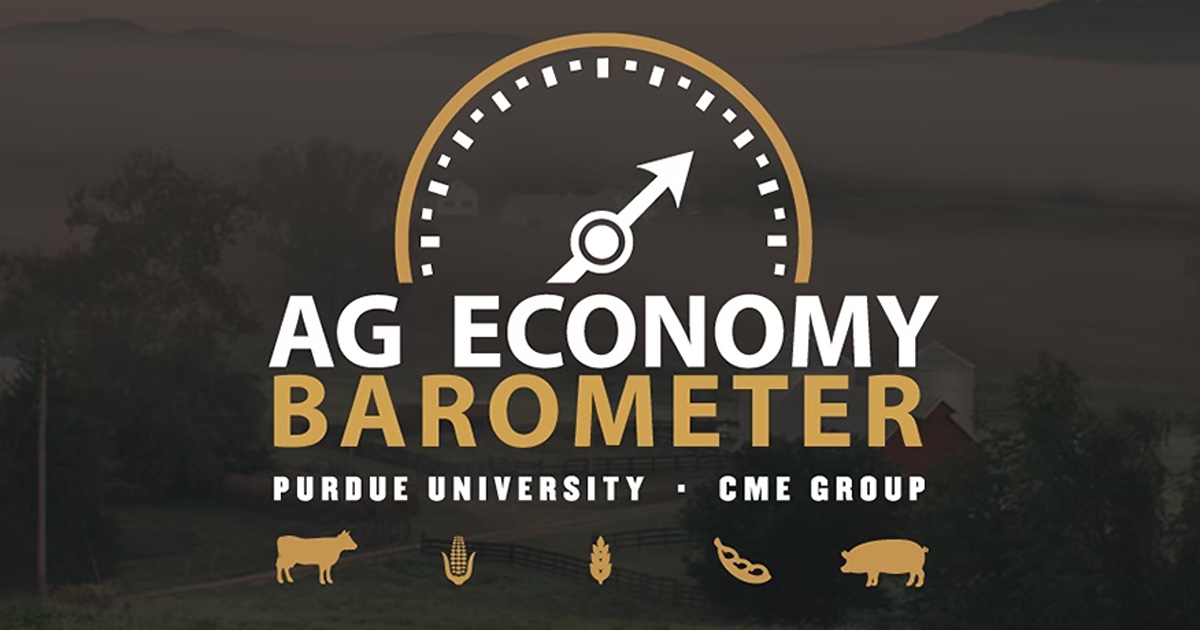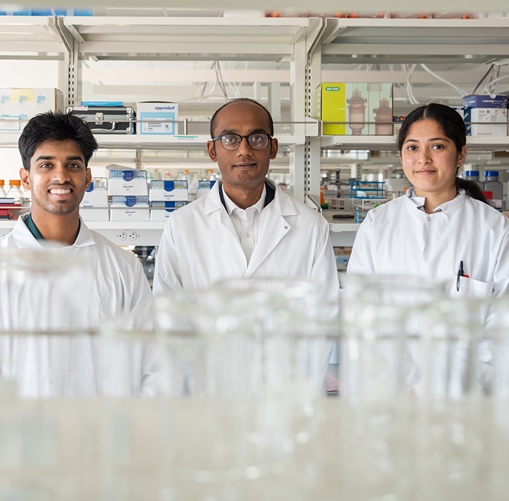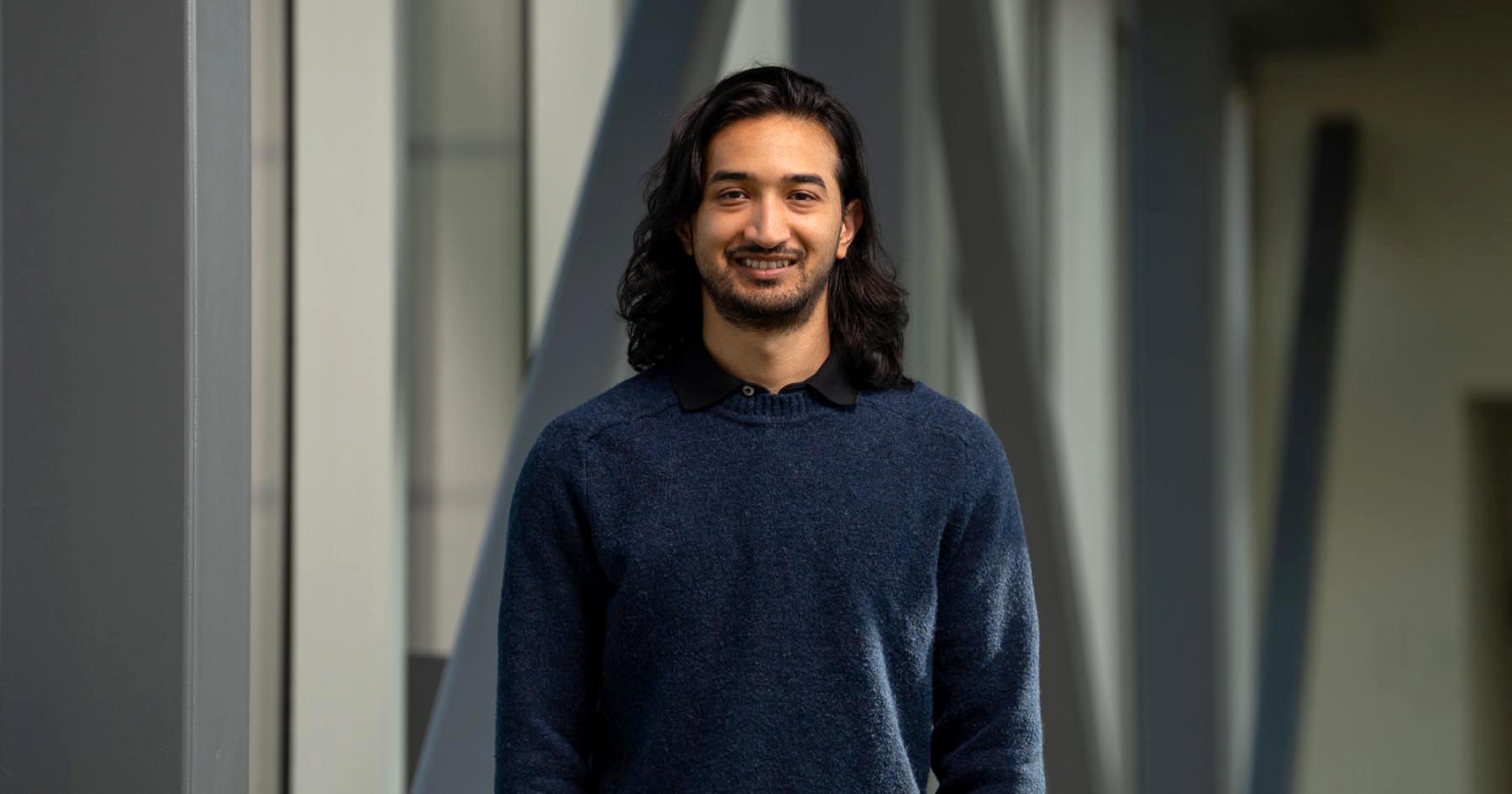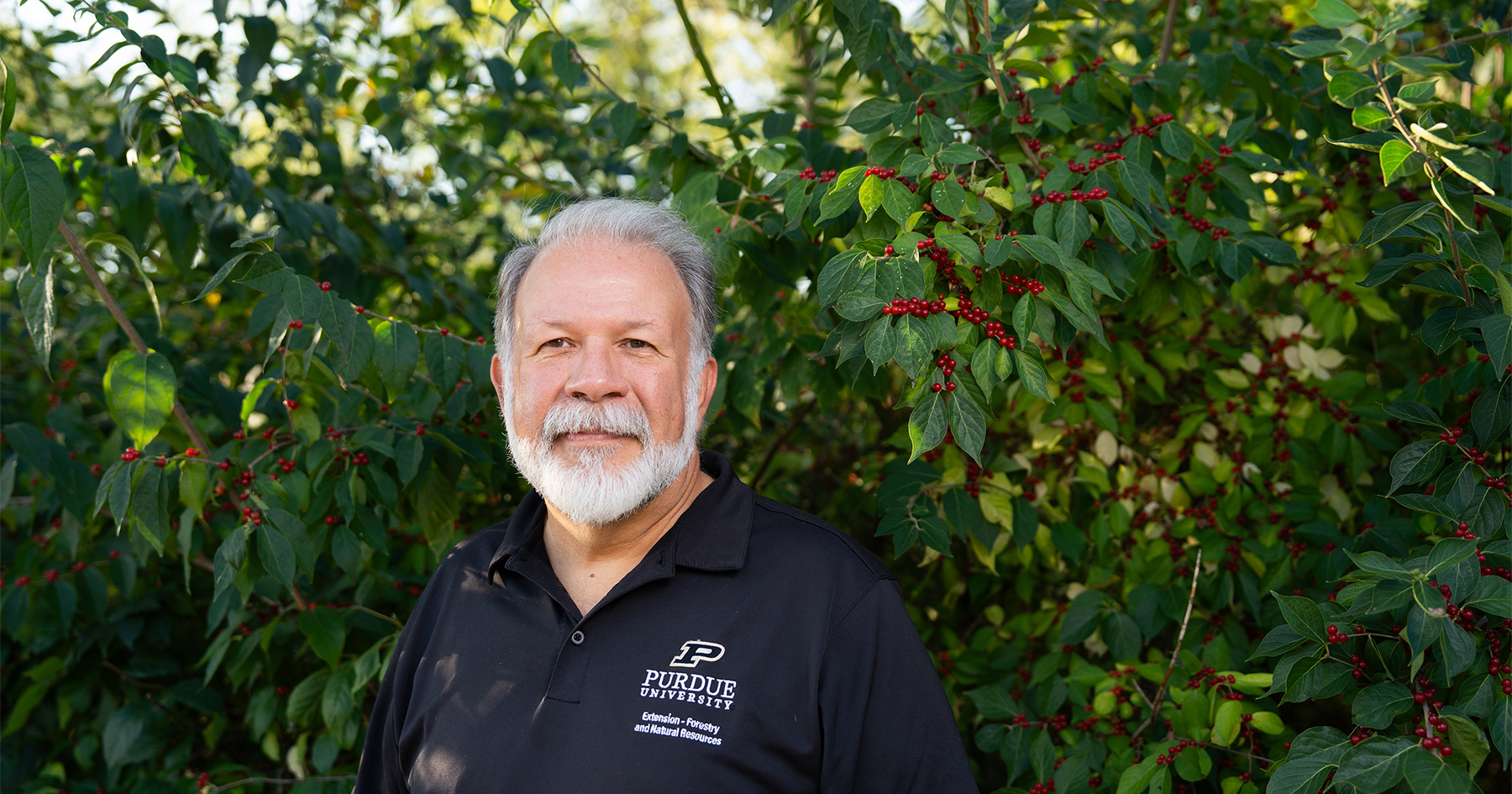Undergraduate Student Spotlight: Jeremiah Geise
Jeremiah Geise is a senior in animal sciences, and he comes from a family farm in Arlington, Indiana.
Geise is a part of the fourth generation on the farm, and he has experience in row crops, swine, sheep, and goats. The farm is where he found his passion for working with livestock, more specifically goats.
Geise found his love for goat production after helping his neighbor at the county fair with her goats. Now, his operation has around 100 breeding animals, which include both dairy and meat goats.
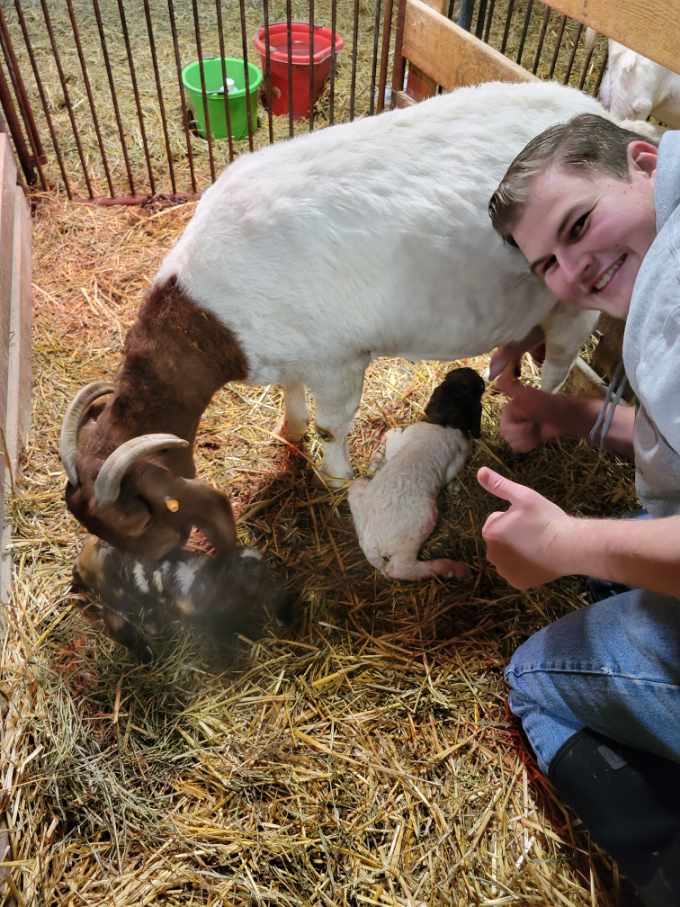 Jeremiah Geise is at his family farm with a doe and her kids.
Jeremiah Geise is at his family farm with a doe and her kids. Geise was also a state officer for Indiana FFA in 2021 to 2022.
According to Geise, he chose to attend Purdue because of its resources and opportunities.
“For me, part of it was the opportunities, both within the department and outside,” Geise said. “Purdue has a lot of really good resources. James [Krotz] and Barry [Delks] are so helpful about finding opportunities within the college and outside of the college.”
Geise also mentioned Purdue's affordability was another reason he chose to attend the university.
“I've been able to go through my entire educational journey debt free because of how affordable Purdue has been,” Geise said.
On campus, Geise was a part of the founding executive board for Students for Cultivating Change, which is an organization that creates a safe and inclusive environment for Lesbian, Gay, Bisexual, Transgender and Queer (LGBTQ+) students in the college of agriculture.
Geise has also completed internships during his time as an undergraduate student. The two internships that had a lasting effect on him were his internships with Grande Ronde Goat Dairy and Vytelle.
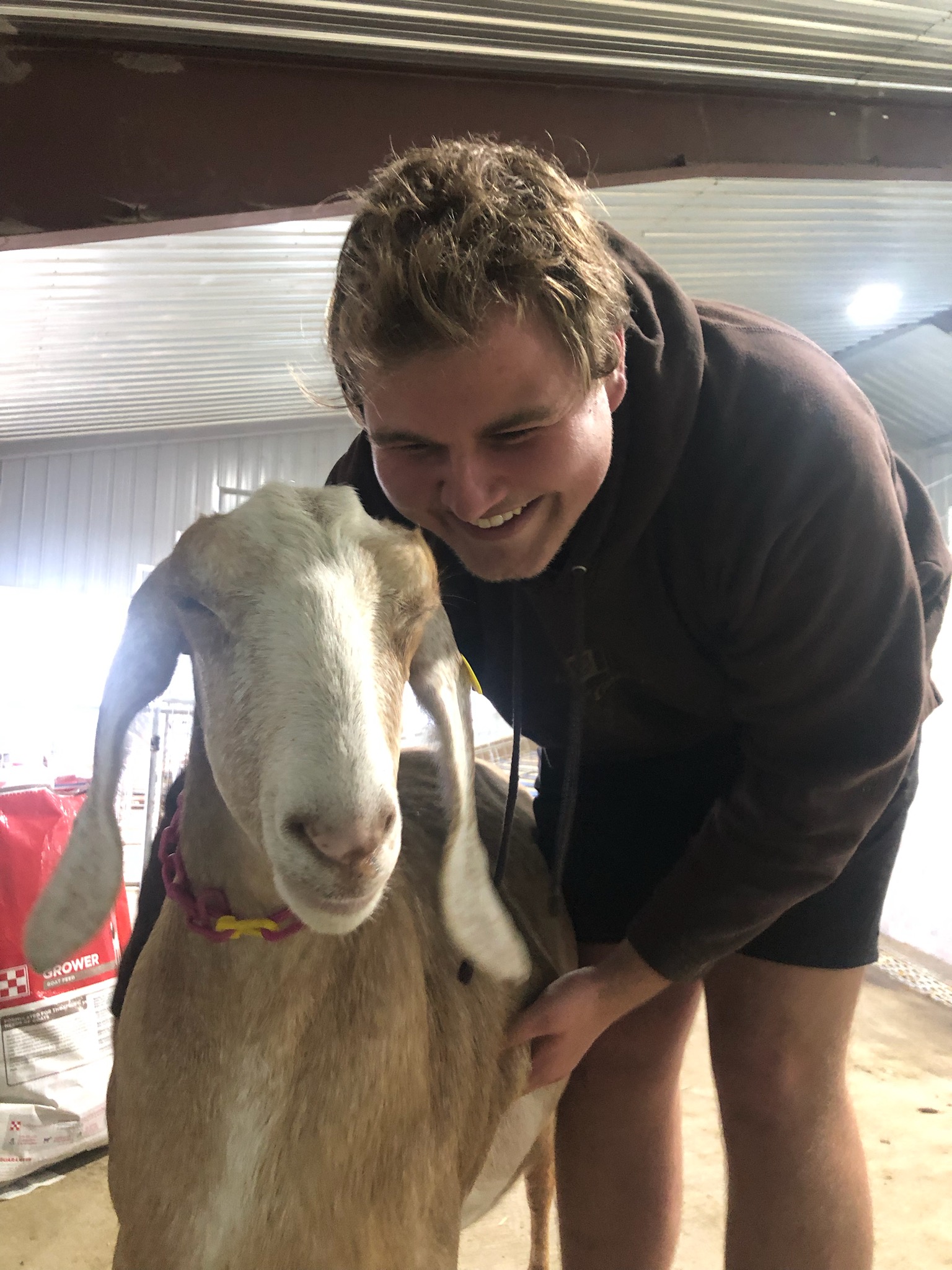 This is Jeremiah Geise at his goat dairy management internship with Grande Ronde Dairy in LaGrande, Oregon.
This is Jeremiah Geise at his goat dairy management internship with Grande Ronde Dairy in LaGrande, Oregon. At Grande Ronde, Geise milked 1,200 does every day, and at Vytelle, he was a part of the sales team. He found that he enjoys working with goats, precision agriculture in livestock production and genetics through both of these internships. These internships also built his confidence and knowledge in the field of agriculture.
“Once you know and learn something, you can't really unlearn it unless it's obviously something really incorrect,” Geise said. “When I was working at that goat dairy, I knew that the goat dairy business was not as, I guess, steady as we see in the cattle market, as there's milk orders that help control pricing for cattle milk. When I was working with Vytelle, I was learning more about feed efficiency, programming and how that is going to potentially help push the industry forward. Now that I have that information, it's only going to further my interest and passion for the livestock industry.”
During his undergraduate career, Geise has also created a business plan for a meat and dairy goat operation called “Midwest Caprine.”
“I hope Midwest Caprine can become an innovator of goat genetics nationally,” Geise said.
Geise's goal for this business is to address the lack of data and resources and bridge the gap between large and small-scale producers.
“In the United States, as well as internationally, a big problem within the meat goat industry that I see as someone who works in the industry, there is not a lot of data regarding meat goats. And then on the dairy side, there's a huge gap, I believe, between large scale producers and small farmers. And there's something that needs to bridge that gap.”
Geise has had a few challenges in starting his business, which include finding goats with quality genetics and financial support, but he has received help from his boss at his dairy goat internship and an adviser from the Indiana Small Business Development Center.
Geise also mentioned that his experience in the animal sciences program has helped in creating his business. The department’s nutrition, production, dairy management and animal breeding and genetics courses have been beneficial to him in this process in addition to faculty support.
According to Geise, his greatest accomplishment as an undergraduate student is making connections.
“All the friends and all the faculty members I've connected with, that has been the most pivotal moment for me here making all these connections,” Geise said. “I have connections in the Netherlands and New Zealand. Three years ago, if you would have told me that, I wouldn't have believed you.”
Geise came to Purdue to pursue a career as a veterinarian; however, he has found a passion outside of animal medicine. He is currently looking at graduate school opportunities at Purdue and other colleges and universities across the country and world in animal breeding and genetics. If this opportunity falls through, his parallel plan is to begin working in industry or with Midwest Caprine.
“I am really invested in working in the ruminant industry, in some facility,” Geise said. “It has been such a pivotal role in my life. I also love education. I love teaching people about my passions and making them excited about what I'm excited about. So I'm hoping in some way or shape or form, I'll be able to contribute in academia as well as be able to work within this small ruminant industry.”
Geise said the biggest strength of the department is its networking opportunities.
“My network would not be what it is today if it weren't for the department,” Geise said.
Geise’s advice for incoming students is to be inquisitive.
“Always question what you're learning,” Geise said. “Questioning things is not a bad thing. That's how I learned so much.”

